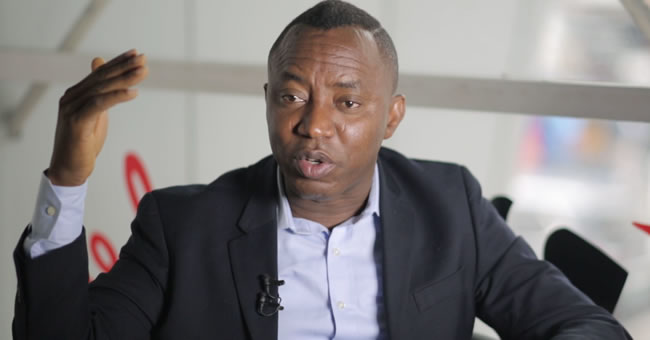In a recent statement, Omoyele Sowore, the African Action Congress (AAC) presidential candidate in the 2023 election, expressed skepticism regarding the Supreme Court judgment granting autonomy to local governments. Sowore opined that the ruling would remain ineffective as long as state governors maintain control over the electoral machinery of local governments.
Sowore took to his X account to share his views on the matter. He highlighted the problematic nature of state governors' influence over local government elections, arguing that this control allows them to rig elections and install their loyalists in power. According to Sowore, this practice undermines the Supreme Court's judgment and renders it ineffective.
He wrote, "As long as Nigerian state governors control the State Electoral machinery, ruthlessly rig Local Government elections and install their minions (minimes) in the LGAs, the Supreme Court ruling would remain ineffective! And at any rate, any time @officialABAT is seen around control of funds, run, please run!”
In contrast, Doyin Okupe, former Special Adviser to ex-president Olusegun Obasanjo, criticized the Supreme Court ruling, asserting that local governments are not federating units of Nigeria. Okupe described the ruling as a constitutional aberration that would create political confusion.
Okupe argued that local governments belong to the states and should not be a federal issue. He explained, “The Supreme Court has declared in a landmark constitutional judgment that it is unconstitutional for state governments to hold on to LGA funds. It also went ahead to direct the FG to pay the 774 LGAs directly. On the surface and judging by our recent history, this political judgment sounds good and is a great relief to the LGAs who have hitherto been financially emasculated and starved of their lawful revenues by state governors, thereby preventing them from being administratively and developmentally functional at the Grassroots levels."
However, Okupe saw the ruling differently, stating, “I see a major constitutional aberration and political confusion here. I insist that the LGAs are not part of the federating units under our federalism. Which unequivocally is the union between the Central government (FG) and the subnationalities (States) only.”
With the Supreme Court ruling in place, Okupe urged President Bola Tinubu to take steps towards providing Nigeria with a new constitution. He suggested that a new constitution is essential to address the country's diverse needs and conflicts.
“Without doubt, President Tinubu now, in the midst of this constitutional dilemma, must provide the nation with an opportunity to firmly take charge of its destiny through the provision of a new workable and acceptable Constitution, be it Federalist/Unitarist/any others, that will once and for all address our varied yearnings, interests, desires, unresolved conflicts, cultures and sensitivities as sub-nationalities within the framework of a Nigerian federation and nation state,” Okupe added.
The debate over local government autonomy in Nigeria continues to generate strong opinions. Sowore's concerns about state governors' control over local elections and Okupe's constitutional critique highlight the complexities involved in implementing the Supreme Court's judgment.
As Nigeria moves forward, the call for a new constitution and a reevaluation of the relationship between federal and local governments will likely remain central issues. The effectiveness of the Supreme Court's ruling will depend on addressing these underlying political and structural challenges.










0 Comments
Post your comment here